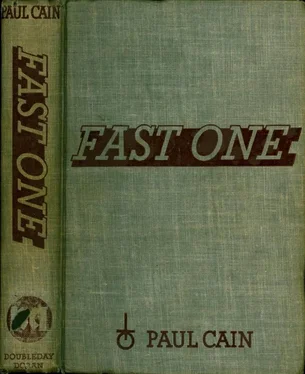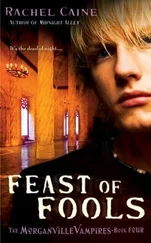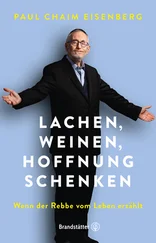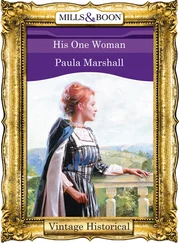He went close to the building. It was very dark there, but looking up he could see the vague outline of a fire escape against the yellow glow of the sky. He smiled to himself in the darkness, put the back of his hand against his forehead. It was hot, dry.
He felt his way along the wall of the building until he was under the free-swinging end of the fire escape. It was almost four feet beyond his reach. He went back the way he had come to the fence, went along it until, in the corner the fence made with a squat outbuilding, he found a fairly large packing case. He stood on it and found that it would hold his weight; he balanced it on his shoulder and carried it back into the shadow of the building.
Standing on the box, he could just reach the end of the fire escape; he put his weight on it, slowly. It creaked a little, came slowly down.
When the bottom step was resting on the packing case he crawled slowly, carefully up to the first landing. He lay on his side, held the free-swinging part so that it would come up quietly. Then he stood up.
Two windows gave on the second landing. One was boarded up snugly, no light came through. Kells put his ear to it, could hear only a confused hum of voices. The other window had been painted black on the inside but a long scratch ran diagonally across one of the panes. He took off his hat, put his eye close to the scratch.
He was looking into the office that ran almost the width of the building, was partitioned off from the big upstairs room by a wall of rough, unpainted pine boards.
The first person he saw was a woman whom he had never seen before. She-was sitting on a broad desk, talking to two men. One of the men, in ill-fitting dinner clothes, was unfamiliar — the other man turned as he watched, and Kells recognized Lieutenant Reilly.
Reilly was heavy, shapeless. A cast in one eye gave his bloated, florid face a shrewdly evil quality. He was holding a tall glass of beer in-one hand; he lifted it, drank deeply.
There were two large washtubs full of bottled beer and ice on the floor near the desk.
Another woman, in a bright orange evening gown, crossed Kells’ line of vision, stooped and took two bottles from one of the tubs, disappeared.
Kells’ lips framed the word. “Party.” He was grinning.
Then he saw Ruth Perry. She was sitting on a dilapidated couch at one side of the room, swaying drunkenly back and forth, talking loudly to the man beside her. Kells put his ear to the pane but couldn’t quite make out the words.
The man beside her was MacAlmon.
Then the rough pine door in the middle of the far wall opened and two men came in. In the moment the door was open, Kells saw a swirl of people around one of the crap tables in the big gambling room. Then the door closed; Kells looked at the two men.
One of them was a short-bodied, long-armed man whom Kells remembered vaguely from somewhere. His face was broad and bland and child-like.
The other was Jack Rose.
Kells slid the big automatic out of its holster.
Rose’s long, tanned, good-looking face was cheerful; his thin red mouth was curved to a smile. He crossed the room and sat down beside Ruth Perry, spoke across her to MacAlmon.
Kells looked thoughtfully down at the dark slippery steps beneath him. Looking down made him suddenly dizzy — he blinked, shook his head sharply, put one hand on the railing for support. He thought he was going to be sick for a moment, but the feeling passed. He was hot and the rain felt terribly cold on his head.
Then he looked up again, at the door. There was a big, planed two-by-four up and down its middle that could be swung sideways into two iron slots — one on each side of the door.
As he watched, the woman and Reilly and the other man whom he had seen first took up their glasses, went out of the room. That left — as nearly as he could judge — six or seven people. Rose, Ruth Perry, MacAlmon, the short man who had come in with Rose, the woman in the orange dress; perhaps two or three more whom he hadn’t seen.
He looked at the crosspieces between the four panes of the window, felt their thickness with his fingers. Then he stood up and braced himself against the railing, released the safety on the automatic, put one foot against the crosspieces and pushed suddenly with all his weight. They gave way with a small splintering noise, glass tinkled on the floor. Kells stumbled on the lower part of the window frame, almost fell. He saved himself; by grabbing the upper edge, felt a long sharp splinter of glass sink into the flesh of his hand. He held the automatic low, put one foot slowly down to the floor.
The woman in the orange dress looked as if she were going to scream; the man beside her took her arm suddenly, roughly — she put her free hand up to her mouth, was silent.
Rose had stood up; one hand was behind him. Kells jerked the automatic up in a savage gesture — Rose put his hands up slowly. Ruth Perry and MacAlmon were still sitting on the couch, and the short man was standing near them with his back to Kells, looking at Kells over his shoulder. The short man and MacAlmon put their hands up slowly.
Kells went swiftly sideways to the door, swung the bar. A great deal of noise came through the wall from the outer room and it occurred to him that perhaps the crashing of the window hadn’t been heard outside.
Ruth Perry was staring Wearily at Kells. She said: “Shay — whatch ish all about?”
MacAlmon put down one hand and put it over her mouth, said: “Shut up.” MacAlmon was dead white.
Kells looked at the other man — the one he hadn’t seen before, the one with the woman in the orange dress. He, too, put his hands up, rather more rapidly than the others had.
Someone pounded on the door, a voice shouted: “What’s the matter in there?”
Kells looked at Rose. The automatic was rigid in his hand, focused squarely on Rose’s chest. Rose looked at the gun, swallowed.
MacAlmon said: “Nothing...”
Rose swallowed again. He smiled weakly, licked his lips. “We’re playing games.” There was laughter outside the door — a man’s laughter and a woman’s. The voice asked: “Post office?”
The woman in the orange dress giggled. Then her eyes rolled back in her head and she slumped down softly to the floor.
Ruth Perry pushed MacAlmon’s hand away, stood up. She swayed, stared drunkenly at Kells; she shook her head sharply and staggered forward, said: “Well, I’m a dirty name — ish Gerry — good ol’ son of a bitch, Gerry. Lesh have a drink.” She stooped over one of the tubs, almost fell.
Kells was standing with his back to the door. His face was bloody and blood dripped from his cut left hand. He took a handkerchief out of his overcoat, held it to his face.
He said: “We’ll take a walk, Jakie.”
Rose moved his shoulders a little, half nodded. Ruth Perry lost her balance, sprawled down on the floor. She sat up slowly and leaned against the wall. Kells was staring at Rose. His eyes were bright and cold and his mouth curved upward at the corners, ever so little. He said: “Come here.”
Rose came across the room slowly. When he was close enough, Kells put his left hand on his shoulder suddenly, spun him around, slid his hand down to jerk a small caliber automatic out of Rose’s hip pocket.
Kells said: “We’re going out of here now. You’re going to walk a little ahead of me, on my right. If we have any trouble, or if any of these gentlemen” — he jerked his head toward MacAlmon and the short man and the other man — “forget to sit still, I’m going to let your insides out on the floor.”
He swung the bar up straight, took the key out of the door. “Do you understand?”
Rose nodded.
Ruth Perry staggered clumsily to her feet. She had picked up an ice pick that was laying by one of the tubs; she waved it at Kells. She said: “Don’ go, Gerry — ’s a swell party.” She weaved unsteadily toward him.
Читать дальше












